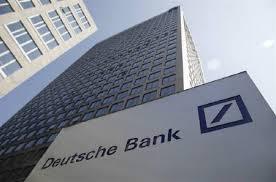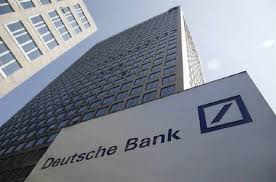
Reuters/Johannes Eisele/Files
Suspicions of the American agency were raised by the so-called mirror transactions with specialized financial instruments - derivatives. Bank customers bought them for rubles on the Moscow stock exchange OTC market, and a few seconds later sold on the OTC market in London.
The Department of Financial Services of New York on July 14 asked the Deutsche Bank for documents of its Moscow office to track suspicious transactions. According to the agency, of a special interest was the episode with a bribe, which was supposedly offered to employees of the bank for the resumption of operations with the counterparty with whom the work has been suspended for the time of internal investigation of money laundering. However, according to the investigation, an employee of a credit institution refused to take the money.
Also the US Justice Department is interested in whether any Russian bank customers illegally exchanged rubles for dollars or the existing sanctions against Moscow were broken. The operations of the financial institution with mortgage securities are being examined as well. Deutsche Bank itself does not comment on the situation.
In the second quarter of 2015, Deutsche Bank spent on legal services up to 1.2 billion euros - twice as much as analysts expected.
Deutsche Bank is the largest bank in terms of assets in Germany, founded in 1870. In Russia, the organization works since 1881.
Derivatives are contracts that confer effecters with the right or the duties to perform certain actions with respect to the underlying asset. A classic example of such contracts are crude oil futures, which are traded on international exchanges and determine the price of fuel.
source: bloomberg.com
The Department of Financial Services of New York on July 14 asked the Deutsche Bank for documents of its Moscow office to track suspicious transactions. According to the agency, of a special interest was the episode with a bribe, which was supposedly offered to employees of the bank for the resumption of operations with the counterparty with whom the work has been suspended for the time of internal investigation of money laundering. However, according to the investigation, an employee of a credit institution refused to take the money.
Also the US Justice Department is interested in whether any Russian bank customers illegally exchanged rubles for dollars or the existing sanctions against Moscow were broken. The operations of the financial institution with mortgage securities are being examined as well. Deutsche Bank itself does not comment on the situation.
In the second quarter of 2015, Deutsche Bank spent on legal services up to 1.2 billion euros - twice as much as analysts expected.
Deutsche Bank is the largest bank in terms of assets in Germany, founded in 1870. In Russia, the organization works since 1881.
Derivatives are contracts that confer effecters with the right or the duties to perform certain actions with respect to the underlying asset. A classic example of such contracts are crude oil futures, which are traded on international exchanges and determine the price of fuel.
source: bloomberg.com





